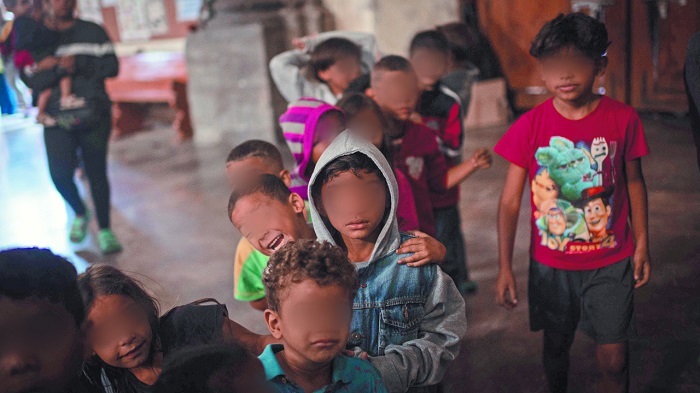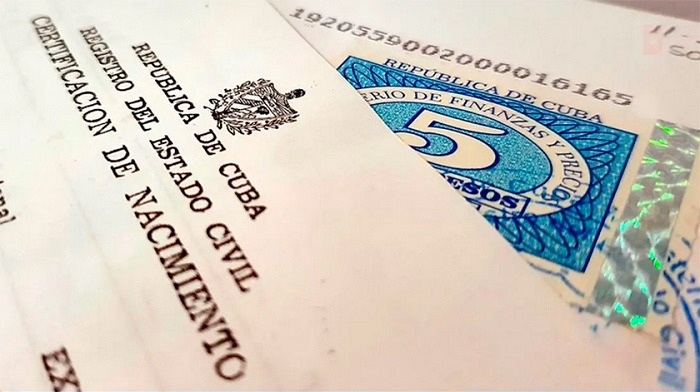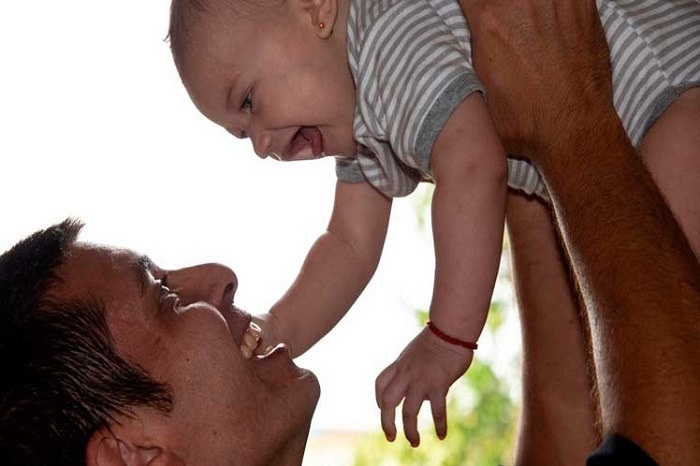“Invisible” Children: Legal Silence by the Crib
especiales

“Every child is a small miracle with the power to change the world.” This is a phrase I borrow—on the occasion of the recent celebration of World Population Day—to illustrate a problem that lacerates the identity of some 150 million children around the world.
It’s an exorbitant and regrettable figure, 150 million children under the age of five remain “invisible” to government systems! Or, to put it another way, around two out of 10 children lack legal identity and rights due to the absence of a birth certificate.

They were not registered by their parents and, therefore, don’t have the birth certificate, which is the first legal proof of identity for children. This document officially records where they were born and who their parents are.
In fact, this registration is essential for acquiring nationality and ensuring that children enjoy their rights from the first breath of life.
The United Nations Children's Fund (UNICEF) report, "A Good Start in Life: Global Levels and Trends in Birth Registration," with data updated to the end of 2024, states that even with birth registration, more than 50 million children worldwide still do not have the certificate.
This text confirms a steady increase in registrations worldwide, noting that, in the last five years, more than 500 million children under age five (eight out of 10) registered at birth have been registered. This figure provides some evidence that a significant number of nations have made progress in assigning the required legal identity.
Among the countries most affected by this reality is sub-Saharan Africa, a geographical area that UNICEF classifies as "very backward." At 51%, it accounts for half of all unregistered children in the world (approximately 90 million).
However, the international organization's report explains that progress and levels vary widely within that same territory. Of the positive cases, it cites Southern Africa as the leader with 88%; West Africa as the most significant progress in 15 years, reaching 63%. In contrast, "Eastern Africa and Central Africa lag behind, both with 41%."

Within the region, other examples of good performance include nations such as Botswana, which has already achieved universal birth registration; Côte d'Ivoire, which exceeds 90%; and Rwanda, Sierra Leone, and Tanzania, among others, which have shown sustained improvement over the last decade.
The report warns that sub-Saharan Africa is destined to host the majority of the world's children in the coming decades. Hence, the slow pace observed in some of the aforementioned states, and in the face of such a rapidly growing child population, could lead to the region accumulating more than 100 million unregistered children by 2030.
Unlike what’s happening in that part of the world, the situation in other latitudes shows very favorable results. Above all, Latin America and the Caribbean, where registration rates have reached 95%. This is followed by East and Southeast Asia (94%), and Central and South Asia (78%).
Currently, the world is experiencing some progress, with 77% of birth registrations completed, driven primarily by countries that emphasize prioritizing proper birth registration. At the same time, they rely on health systems, social protection, and education to promote this process and expand the service to more locations.
Furthermore, there are barriers to children's rights to legal registration and certification.

Among these are belonging to very poor households, living in rural areas with difficulty accessing this process, the cost of fees, parents' lack of awareness of the need to register their children or perhaps their lack of understanding its importance, and certain ethnic and religious minorities who opt for other customs, such as naming ceremonies.
Cuba and its peculiarities
The Convention on the Rights of the Child establishes in Article 7 that: The child shall be registered immediately after birth and shall have the right from birth to a name, to acquire a nationality and, as far as possible, to know and be cared for by his or her parents.
Cuba, in compliance with this international convention, signed in September 1991, has a long history of protecting and respecting the rights of its children. Social, educational, and health laws and policies, as reflected in the Charter, The Constitution of the Republic and the new Family Code, approved in 2022, confirm this.

Through these governmental principles, the right of babies to identity, to be registered and legally recognized, sets the standard for ensuring the full development of childhood.
In fact, most Cuban parents register their children within 72 hours of birth, in the same health institution that received them. This action takes place thanks to a protective measure coordinated by the Ministries of Justice and Public Health.
If registration is not completed for certain reasons, the other option is to go to a Civil Registry office to register and receive the child's birth certificate.

It’s precisely respect and protection for the universal rights granted to children that would change, worldwide, the face of the legal identity of those millions of children who today are teetering in a worrying legal limbo.
Active in these endeavors, Catherine Russell, UNICEF Executive Director, has declared that "birth registration guarantees the immediate recognition of children before the law and lays the foundation for their protection from harm and exploitation, as well as for access to essential services such as vaccines, healthcare, and education."

Because there should never be a lack of space when it comes to looking to the future. Something that the Convention on the Rights of the Child emphatically warns: "There’s no cause deserving of higher priority than the protection and development of the child, upon whom the survival, stability, and progress of all nations and, indeed, of human civilization depend."
Translated by Amilkal Labañino / CubaSi Translation Staff













Add new comment